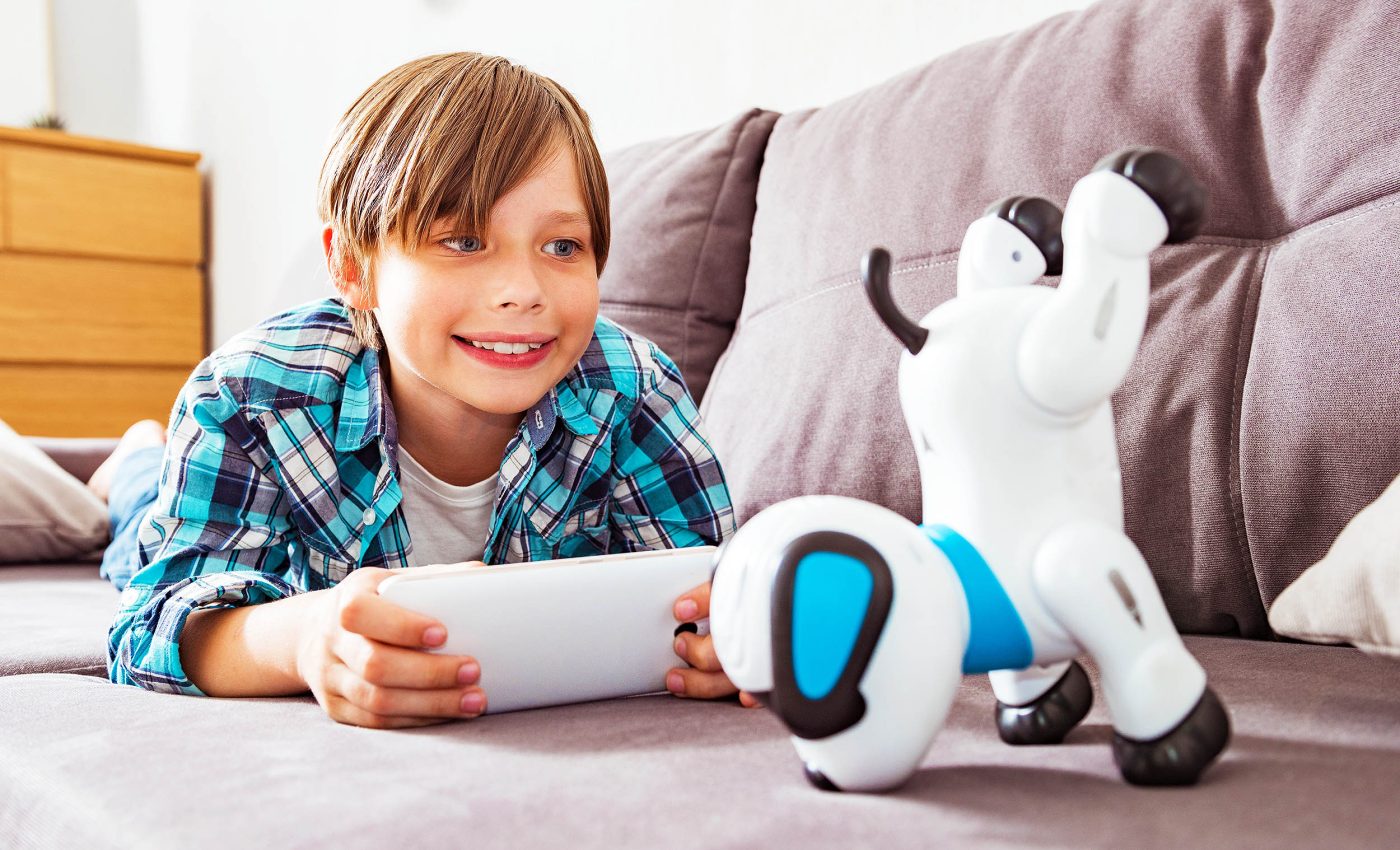
Smart toys are secretly collecting data from children
Ever caught your child engrossed in a seemingly harmless play session with a smart toy? What if this cute, interactive play buddy is a bit nosier than it appears to be?
Smart toys, such as Toniebox, Tiptoi, and Tamagotchi, are gaining momentum in many households worldwide.
Unfortunately, these highly interactive playmates might be harboring a lesser-known secret — they might be prying into your child’s behavioral data, raising serious privacy concerns.
Now, that’s a playdate you didn’t sign up for.
Smart toys keeping track
The Toniebox, as an example, is especially popular among our little ones. It’s an innovative toy that beautifully simplifies music and audio playback for small children.
Just imagine — a plastic figurine of Peppa Pig mounted on this box, and Voila! You have Peppa narrating her own story.
The kid has the command — if they want to stop, they can just remove the figurine. For rewinding or fast-forwarding, tilting the box in respective directions does the trick. What a lavish setting for an uninterrupted playtime, right?
But should parents get too excited about this?
This fun box is meticulously taking notes — tracking when it’s activated and by which figurine, when the child stops the play and where they rewind or fast-forward.
Once the playtime‘s over, it promptly reports back to its maker with all the collected data.
Analyzing the data
Professor Isabel Wagner of the Department of Mathematics and Computer Science at the University of Basel led a team of researchers to study this area.
The Toniebox was just one of the many smart toys that went under the radar. The team left no stone unturned – from the Tiptoi smart pen, the Edurino learning app, the Tamagotchi virtual pet to less popular ones like the Moorebot and Kidibuzz, all had to face this scrutiny.
The team focused primarily on security measures taken by these toys’ manufacturers. They investigated how well the data traffic is encrypted.
Moreover, they checked these toys for data protection and transparency, and if they’re in compliance with the EU General Data Protection Regulation (GDPR).
Smart toy chronicles
The Toniebox and Tiptoi smart pen led the find. The findings weren’t really in favor of them when it came to security. The data traffic in both toys wasn’t adequately encrypted.
However, Toniebox did stir up a privacy storm by collecting data and sending it to the manufacturer, while Tiptoi played it safe in this regard.
Professor Wagner also made an unsettling revelation that even if these toys are operated offline temporarily, they can store the data locally and transmit it whenever they get the chance.
Many manufacturers argue that the collected data helps them optimize their devices. However, with some toys demanding unnecessary access rights, like a smartphone’s location or microphone, it puts the users in a tight spot.
Privacy first
“Children’s privacy requires special protection,” emphasizes Julika Feldbusch, first author of the study.
According to her, toy manufacturers must prioritize privacy and product security more than they currently do, keeping in mind their young target audience.
The researchers propose that a standard compliance label on the packaging, akin to nutritional information on food items, would help parents make an informed choice.
At present, it’s quite a task for parents to gauge the security risks these smart toys pose.
Note to parents
“We’re already seeing signs of a two-tier society when it comes to privacy protection for children,” says Feldbusch.
“Well-informed parents engage with the issue and can choose toys that do not create behavioral profiles of their children. But many lack the technical knowledge or don’t have time to think about this stuff in detail.”
However, it’s crucial to recognize that even though individual children may not experience immediate negative effects, continuous monitoring can hinder their personal growth and self-reliance.
Striking a balance between supervision and independence is essential for healthy development. Encouraging children to explore and learn from their experiences will ultimately foster resilience and confidence, which are vital for their future success.
So, it’s high hour we raise the curtain on these covert operations and advocate for stricter safety standards for smart toys. After all, when it comes to our kids, it’s always better safe than sorry!
The study is published in Lecture Notes in Computer Science.
—–
Like what you read? Subscribe to our newsletter for engaging articles, exclusive content, and the latest updates.
Check us out on EarthSnap, a free app brought to you by Eric Ralls and Earth.com.
—–













